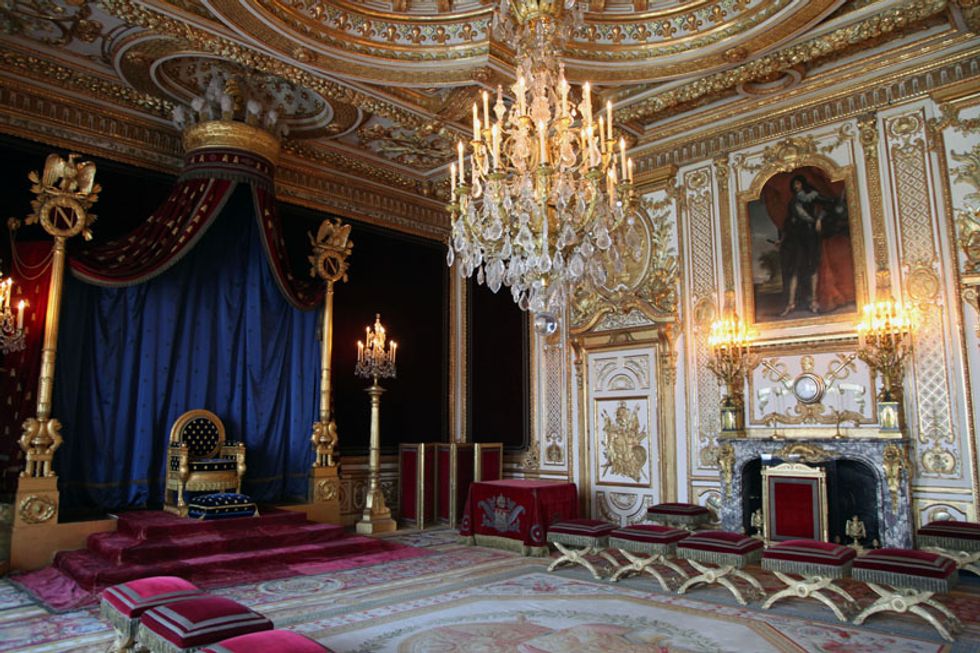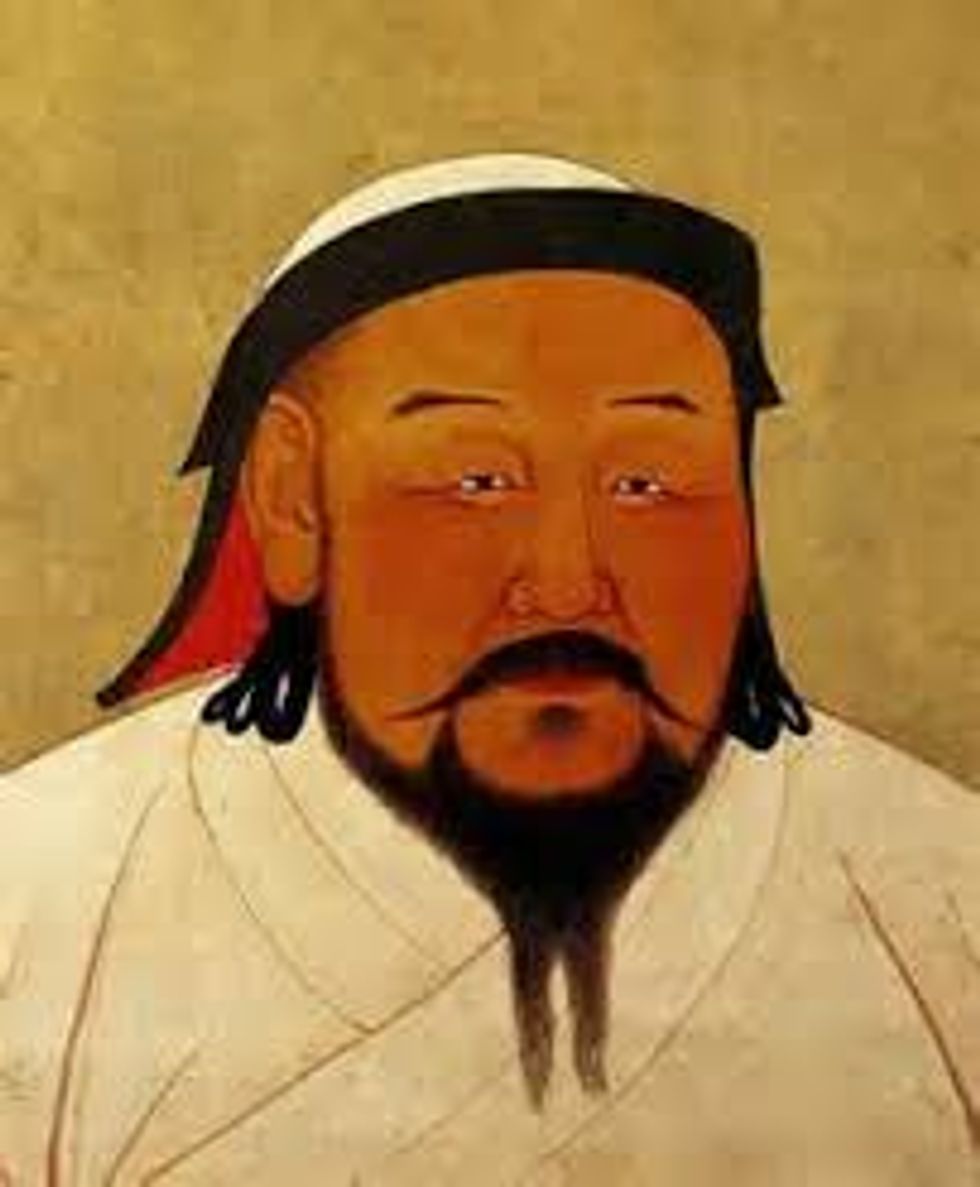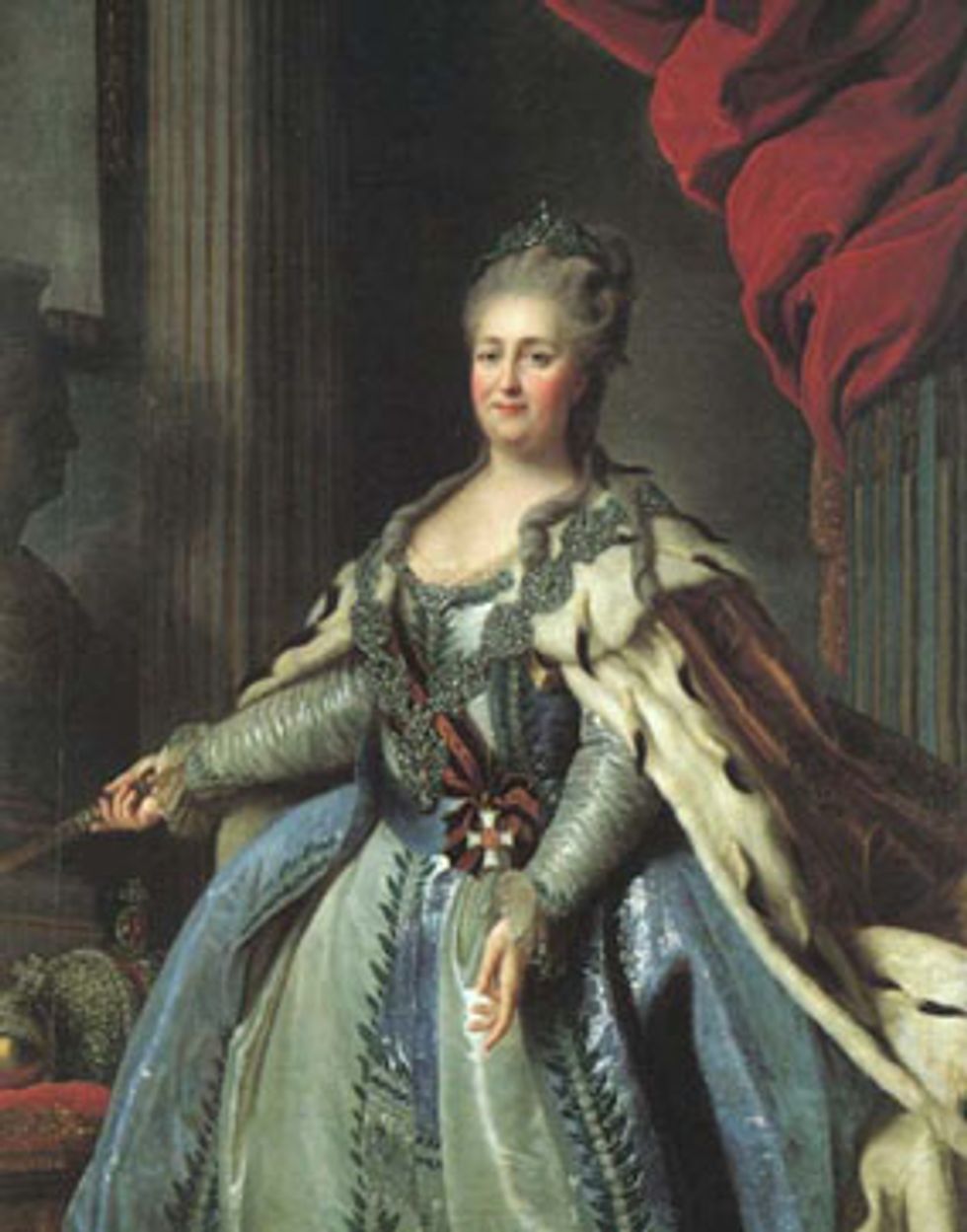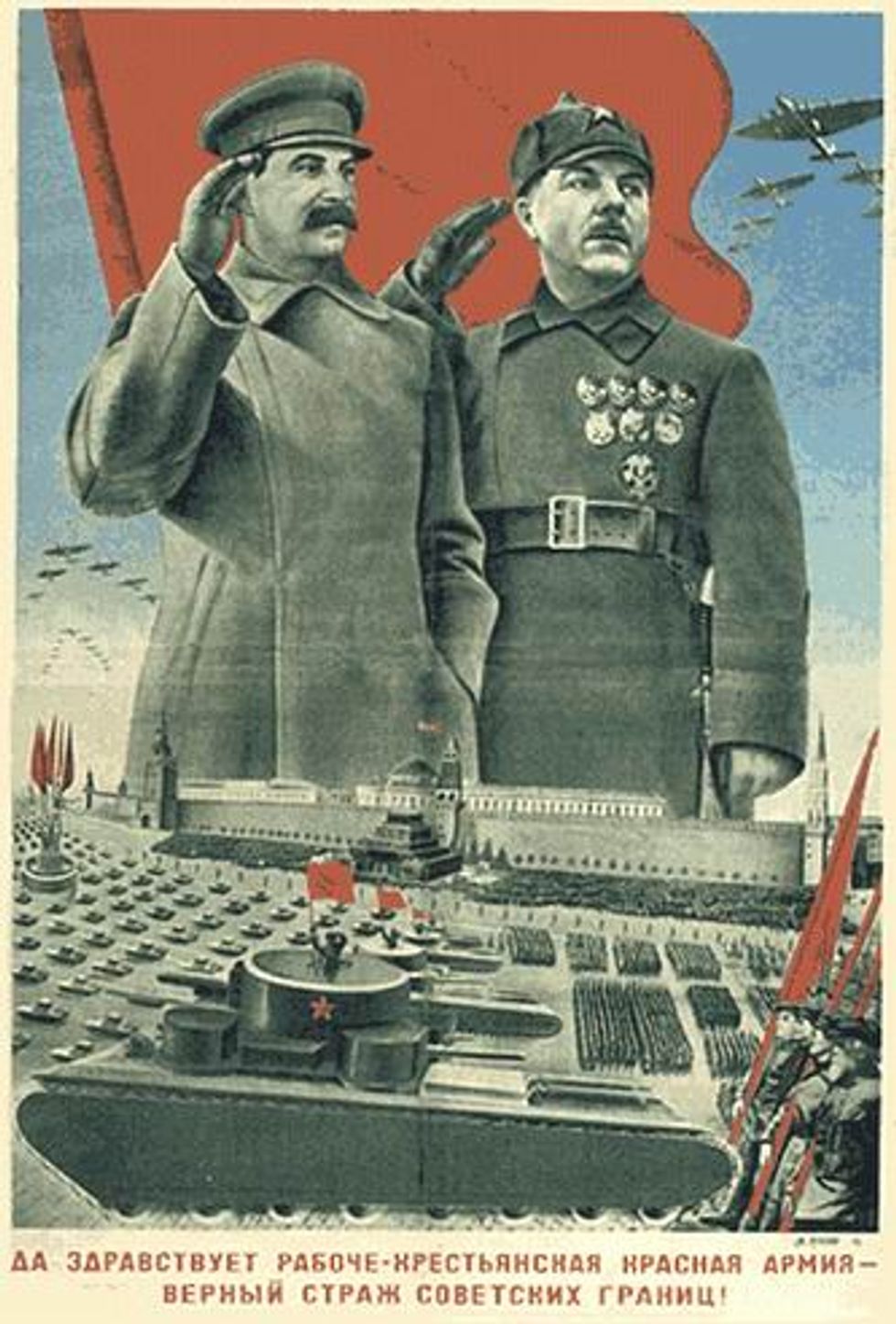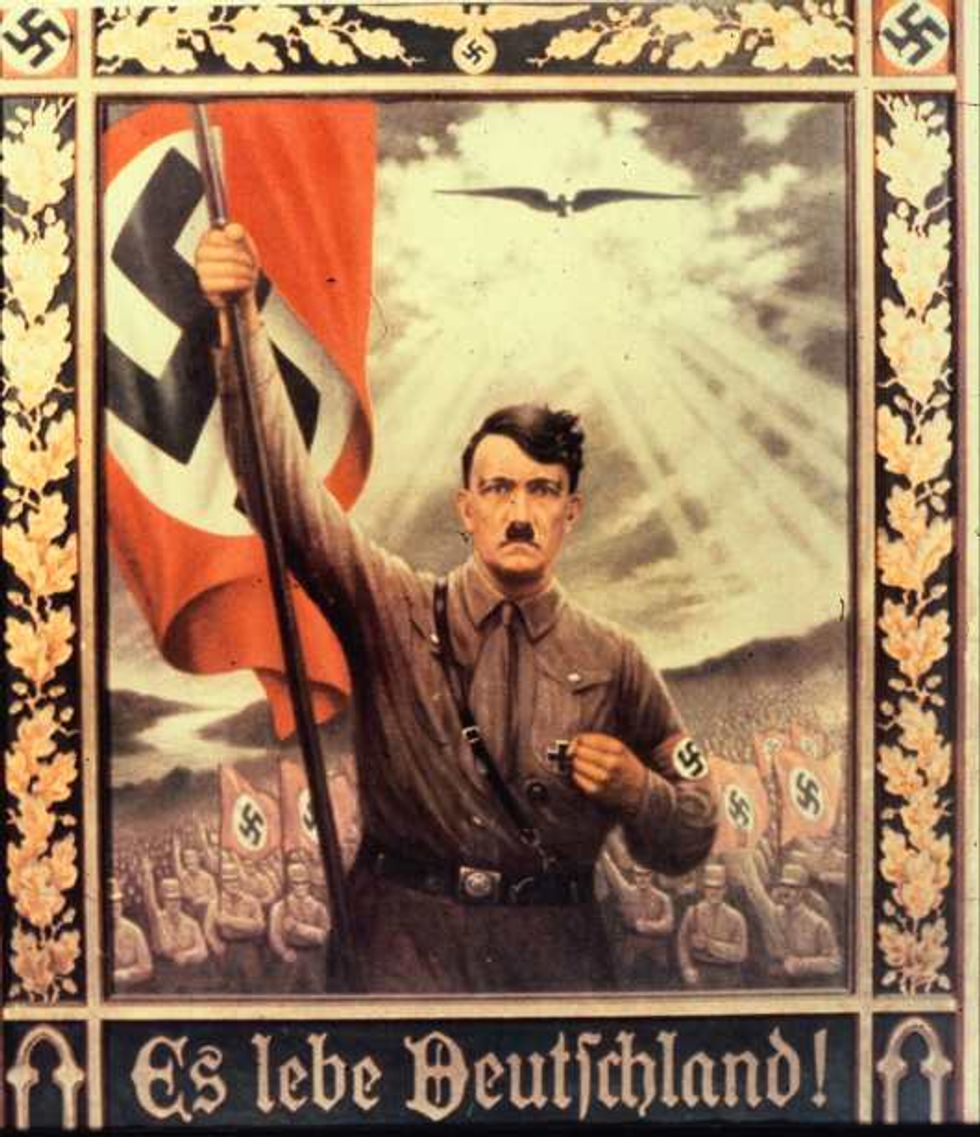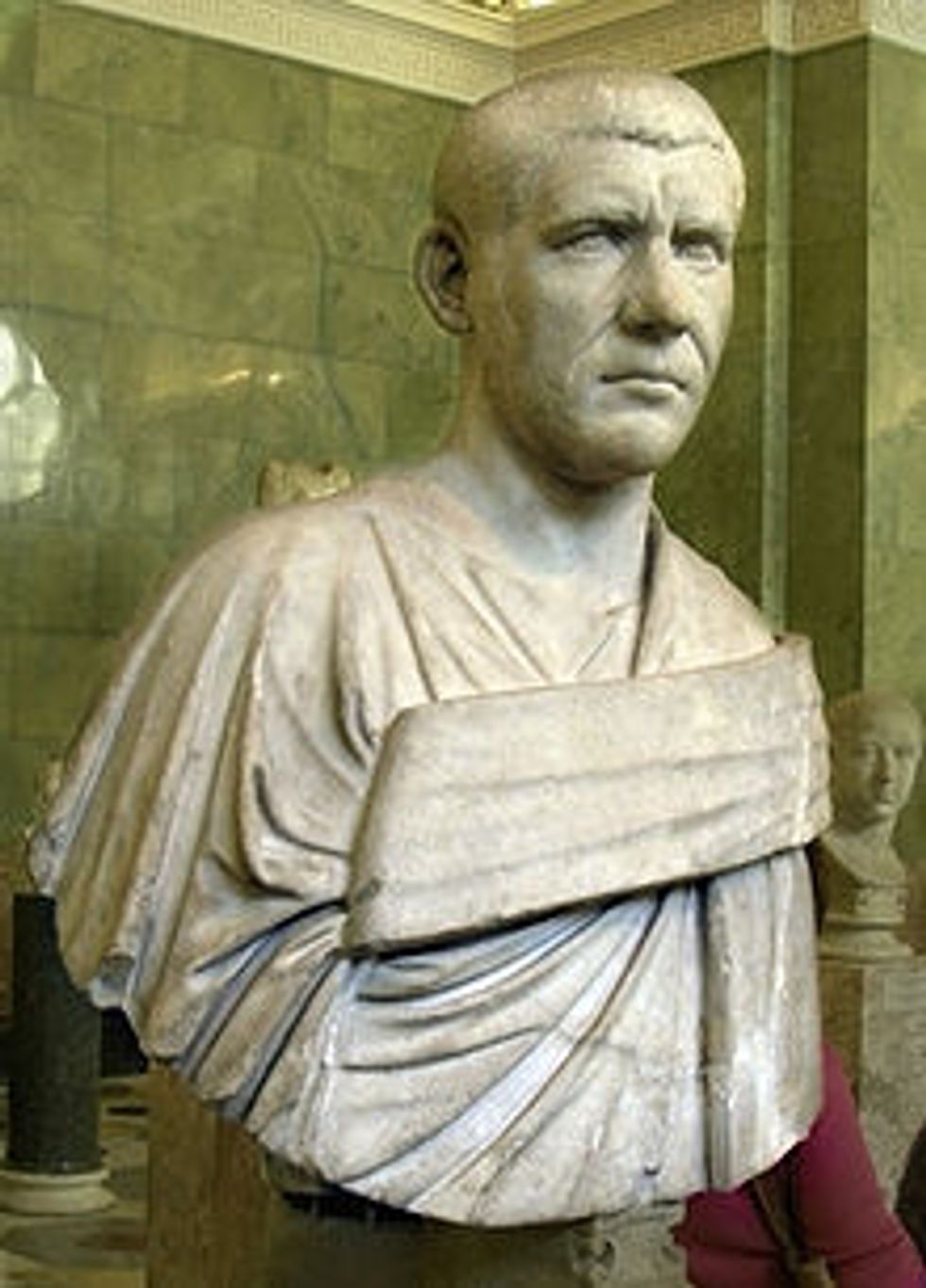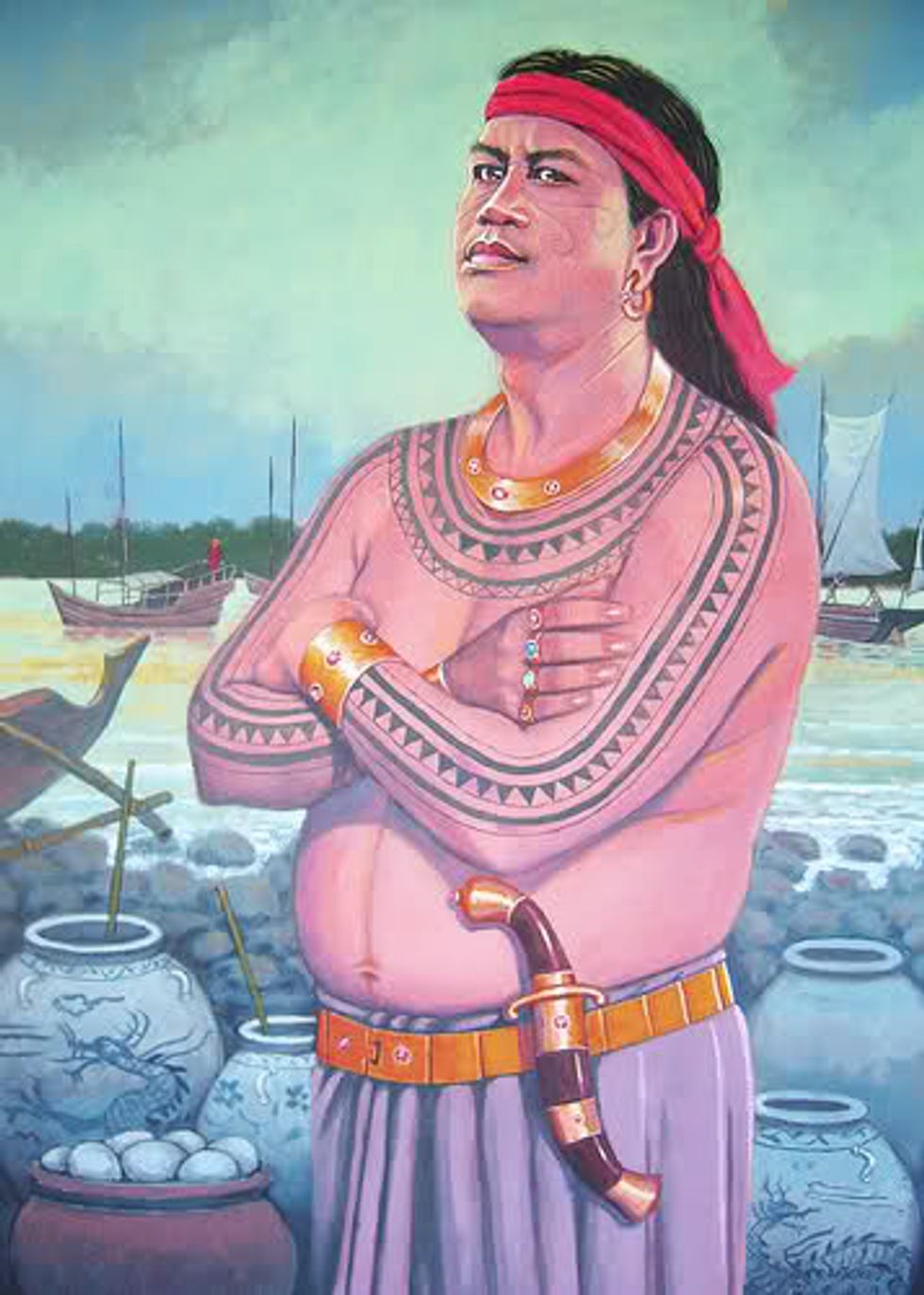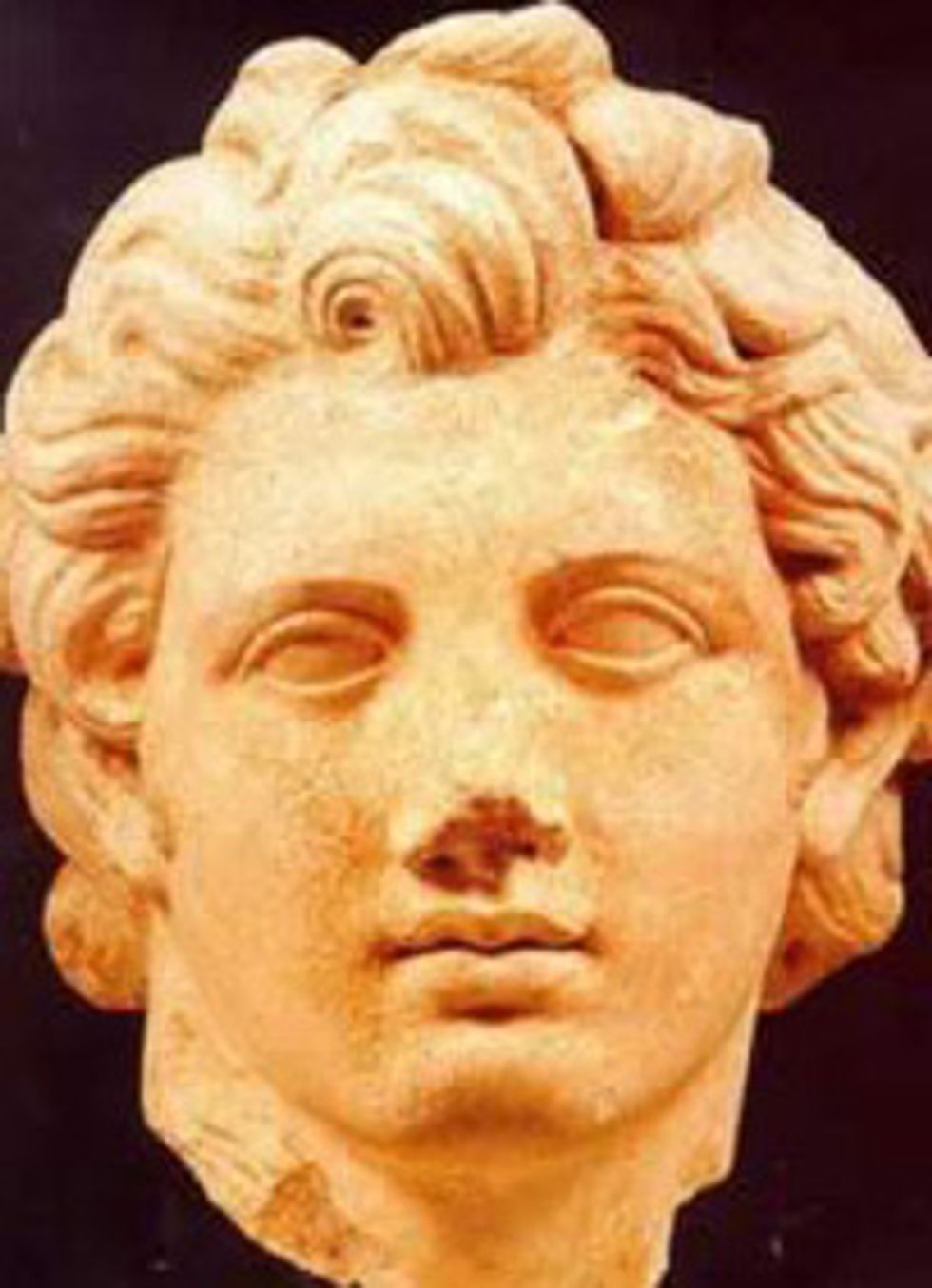Who wouldn't wanna rule an empire? Throughout our history, there have been DOZENS of fairly homogeneous empires that have been ruled by a clan, or a race that wasn't native to that empire, or at least didn't come from the homogeneous majority. Often times, one nobility "transfers" into the nobility of another.
Most often-not, these ruling dynasties of foreign origin had great respect for the people they ruled over and adopted the native culture of the majority. Here, I list some well-known empires that were ruled by non-natives of that land.
Any with an asterix* indicates that it is debatable.
1. Yuan Dynasty of China
Perhaps one of the most well known examples of this, was the establishment Yuan Dynasty by Mongol warrior Kublai Khan, the grandson of Genghis Khan. In 1271, Kublai Khan and the Mongols defeated the preceding dynasty, the Song Dynasty. Khan assumed the role of a "dual ruler", ruling two empires at once, and being crucial to the histories of their succeeding nations, in this case, China and Mongolia.
In this case, Kublai Khan can both be known as the 5th Khan of the Mongol Empire and the 1st Emperor of the Yuan Dynasty of China. His descendants would rule China until they were overthrown in 1368.
A classical example of partial assimilation, Kublai Khan didn't try to destroy Chinese culture and replace it with Mongol culture, instead, he adopted Chinese culture and was venerated as the emperor according to Chinese tradition.
The Yuan Dynasty is considered both a historic dynasty of both Mongolia and China. After the overthrow of the Yuan Dynasty in China, the Mongol rulers retreated into the traditional homelands of the Mongols as the Northern Yuan dynasty.
2. Catherine the Great - Empress of Russia
Catherine the Great has a story and legacy of her own. This ruler was the Empress of the Russian Empire from 1762 to 1796. She wasn't Russian, as a matter of fact, she was a Baltic German, born into Baltic German nobility.
Like Kublai and his respect of Chinese customs and traditions, Catherine the Great had a love of Russia because you know, this was during a time when Russia and Germany weren't trying to murder each other....as a matter of fact, Catherine the Great heralded one of Russia's most glorious golden ages of cultural renaissance, ever since that of Peter the Great.
Catherine the Great spearheaded urbanization in some of Russia's swampy regions, and hadn't it been for her rule, many of Russia's major cities would still be swamps, which - could be good or bad depending on your POV.
3. Qing Dynasty of China*
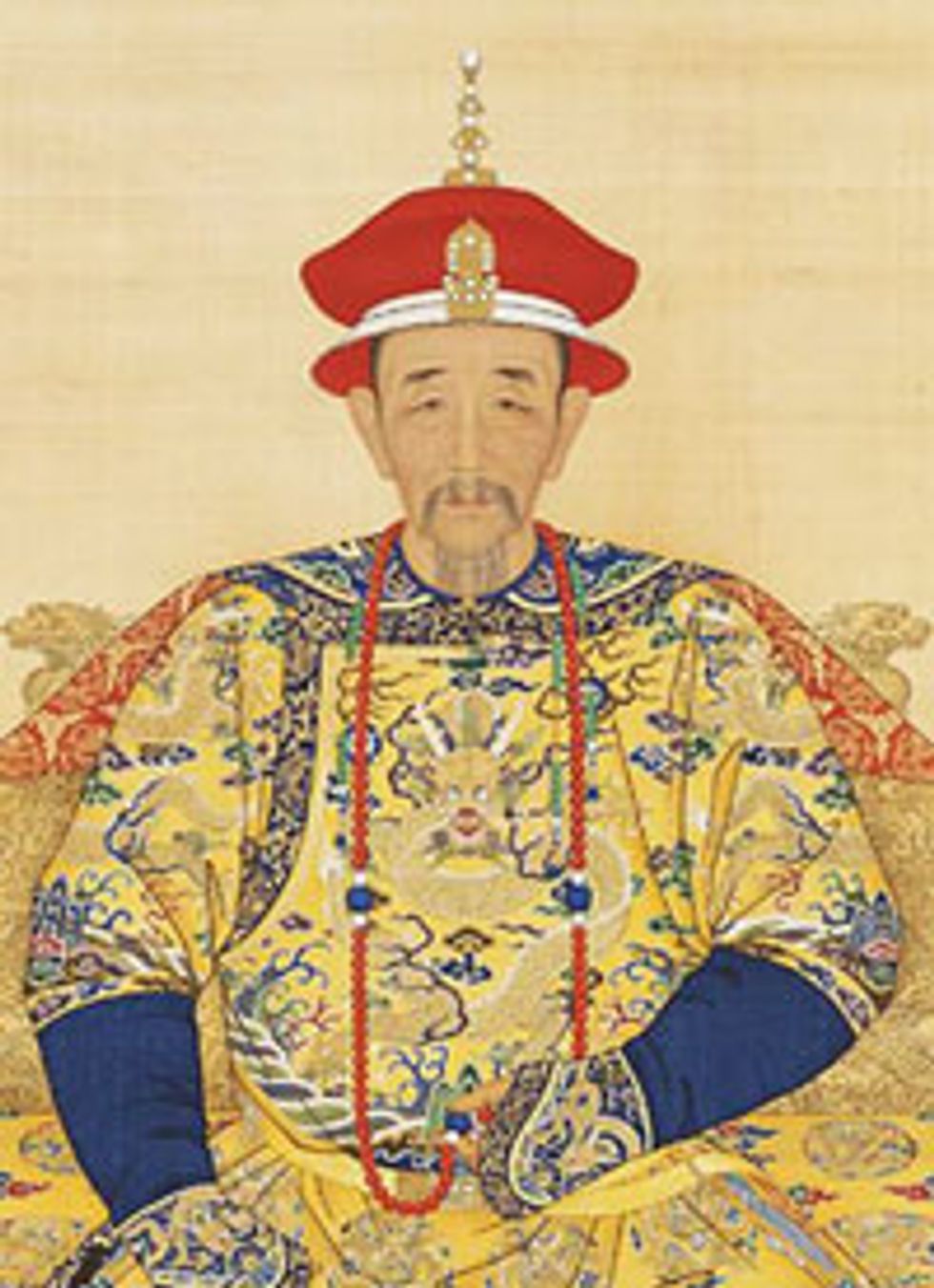
It is during this rule that China, like Russia, became considered a "multi-ethnic empire", with Han Chinese no longer being the representing or ruling race. It also formed the basis for China's modern-day borders.
Unfortunately today, the descendants of the Manchu people while still having a distinct culture, no longer speak Manchu, and are linguistically assimilated into the Mandarin-speaking populace. This would, also be China's last dynasty before the establishment of the Republic of China, during an age where monarchies were being overthrown, just like in Russia.
4. Stalinist Soviet Russia
A dark era in Russian history, even darker than Ivan the Terrible's, came the rule of Joseph Stalin. At this time, the communist regime in Soviet Russia had essentially destroyed a lot of the Russian cultural renaissance, basically undoing what Peter the Great and Catherine the Great had done. Heck, Karl Marx wasn't even Russian (German), neither was Leon Trotsky (an ethnic Jew).
Stalin was an ethnic Georgian, born in the Georgian SSR, and his iron-fist rule and cult of personality in the Soviet Union can only be what many describe to be "hell". In every single sense, be it economic, social and military.
Stalin was perhaps infamously known for initiating the Holodomour - the enforced famine and murder of nearly 10 million Ukrainians. Then, as if communism in of itself wasn't bad enough for the economy, Stalin practically made life a living hell for the rural folks via collectivization, forcing farmers to sell their harvests and livestock for dirt cheap price.
Let's back-track a little, Stalin even murdered OTHER communists. After the communists lost the Finnish Civil War, the Finnish communists fled to Moscow for refuge, Stalin killed them.
If that wasn't bad enough, Stalin went on a reckless murderous tirade on the Soviet military, killing high-ranking officers and leaders. This in turn eliminated the efficient leadership the Soviet military needed to combat the latter German invasion in 1941, which took two years and the loss of 3 million troops to turn around.
I've already mentioned that Stalin also persecuted other communists, and this continued even after the Soviet victory over Nazi Germany. In 1943, Stalin betrayed the Home Army, a communist Polish underground militant group that attempted to overthrow German occupation of Poland. If that wasn't bad enough (as if you hadn't seen that statement ENOUGH), Stalin considered the Home Army a threat to his rule, and had the Soviets and their Polish puppet state arrest Home Army veterans, AND even lied via propaganda that the Home Army were Nazi collaborators......
Stalinist Soviet Russia came to an end in 1953 with the death of Joseph Stalin. Even Nikite Kruschev, an avid communist and anti-Western leader (Iron Curtain ring the bell?) hated Stalin.
5. Nazi Germany
The one we all come to know and love (hate actually....), the Nazi regime in Germany. Hitler wasn't German, but was Austrian. Unlike his Soviet counterpart, Hitler actually reversed the economic hellhole Germany was plunged into after World War I.
Unlike the collectivization policies of Stalin, Hitler allowed many companies to privatize. This is in turn pretty much reversed the unemployment rates in Germany.
Unlike Stalin's reckless tirade on the Soviet military, Hitler didn't go around randomly killing military leaders he didn't like, unless they were Jewish, Slavic or found to be a communist.
A fine example of a ruler, though a despotic one, Hitler was able to defeat military powers: France, Poland and much of the Soviet Union (at least in Europe) at the initial stages of his conquest.
However in his latter rule, because he decided to mimic Stalin and begin his own cult of personality, he paved the way for the downfall of Nazi Germany.
Although Hitler failed to conquer the Soviet Union, he had roughly 2/3 of all of the European Soviet Union conquered. Hitler's empire came to an end in 1944 with the Western Allies pushing in from the west, and the Soviets pushing in from the east.
6. Philip the Arab - Roman Emperor*
Perhaps this strikes the most, the Roman Empire was at once, ruled by an Arab between 244 to 249 A.D. Okay I digress, the Roman Empire was like most empires, multi-ethnic. However, its main ruling base was Italian, or Latin.
Marcus Julius Philippus, was one of the few exceptions, as if his nickname "Philip the Arab" doesn't give it out already. Marcus Philippus was a native of what is today Shahba, in Syria. His Arab descent is admittingly quite debated, with some pointing that he was of Yemenite Arab descent or a native of the Syrian desert, both whom the Romans referred to as Arabs.
But most historians can agree that he was very likely of some form of Arab or Middle Eastern descent. Whether of Arab or Aramean (Ancient Syrian) descent, he was often called "Philippus Arabus", literally meaning "Philip the Arab" in Old Latin.
Rome celebrated in millennial reign, and Philip the Arab was known for making peace with the Persian Empire. Unfortunately, he and his son were both killed by Decius.
In a political sense, Philip the Arab wasn't really a "foreign ruler" since Syria, then known as Arabia Petraea, was Roman territory. However once more, Philip the Arab was ruling over a fairly homogeneous European empire.
Now, during this time, since Islam hadn't yet existed, Arab culture (which in its modern form is very influenced by Islam) wasn't as highly pronounced as today, and the Arabs were following cultures around them, such as Greek, Latin and Syriac culture.
As a result, Philip the Arab was basically venerated like any other European and named accordingly so.
7. Sri Lumay - Rajah of Cebu
Much of the Kingdom of Cebu's records is due to old Philippine legends and folktales, that were recorded by European historians when they traveled to the islands.
The most moving part of this, is the fact that this dynasty originates from ANOTHER conquest dynasty. So this particular kingdom, concentrated on the Philippine island of Cebu, was ruled by a native of modern-day Indonesia.
Sri Lumay according to folktale, was of half Indian and half Malay descent, and was a local prince from the Indonesian island of Sumatra. The Chola rulers of Sumatra sent Sri Lumay to go establish vessel state for the Chola rulers. The prince found the Philippine island of Cebu, and established his realm there.
Although Sri Lumay himself might be a mere character of a folktale, his kingdom and its language, Old Malay, was known to have existed as Italian historian Antonio Pigafetta, who travelled to the Philippines with the Spaniards, recorded the local folklore and culture.
8. Alexander the Great - Pharaoh of Egypt
Alexander the Great was perhaps one of the greatest conquerors in history. One of the unique aspects of his conquest was the fact that he didn't rule his domain as "one empire" and his title wasn't "King of Macedonia, Greece, Egypt and Persia".
He more-so ruled each state as independent empires, in which he was the ruler of their realms, titled independantly so according to the respective traditions of the conquered territories.
This couldn't be anymore true for Egypt, in 332 B.C., Alexander the Great conquered Egypt. The Egyptians venerated him as the son of Amun, to which Alexander the Great took with flatter, equating Amun to Zeus. He was then crowned as the Pharoah of Egypt.
He founded Alexandria and made it the capital of the Greek Empire, which today, despite Egypt being a Muslim nation, still bears huge significance as a learning center of Greek history.


